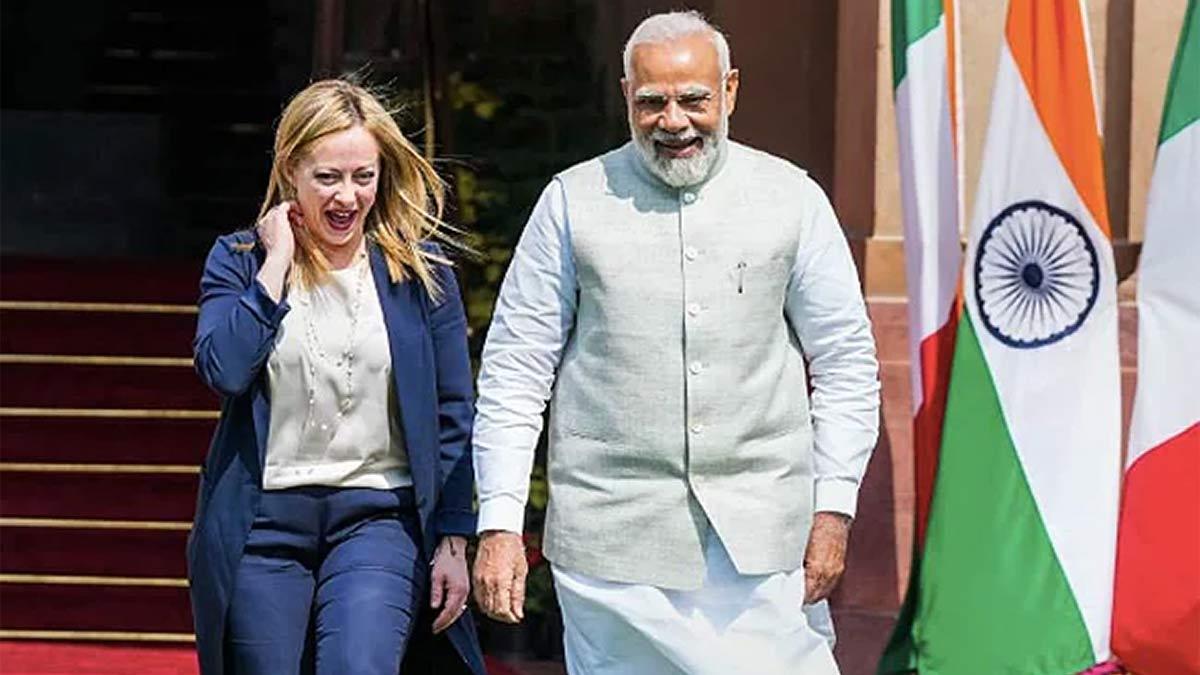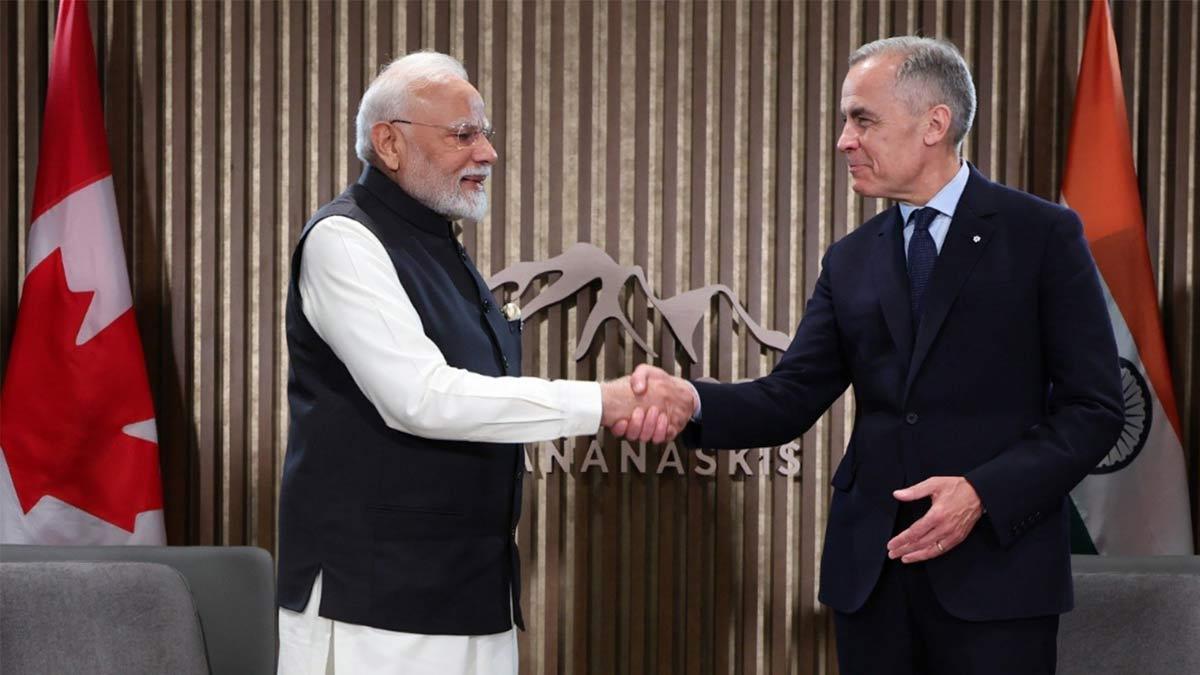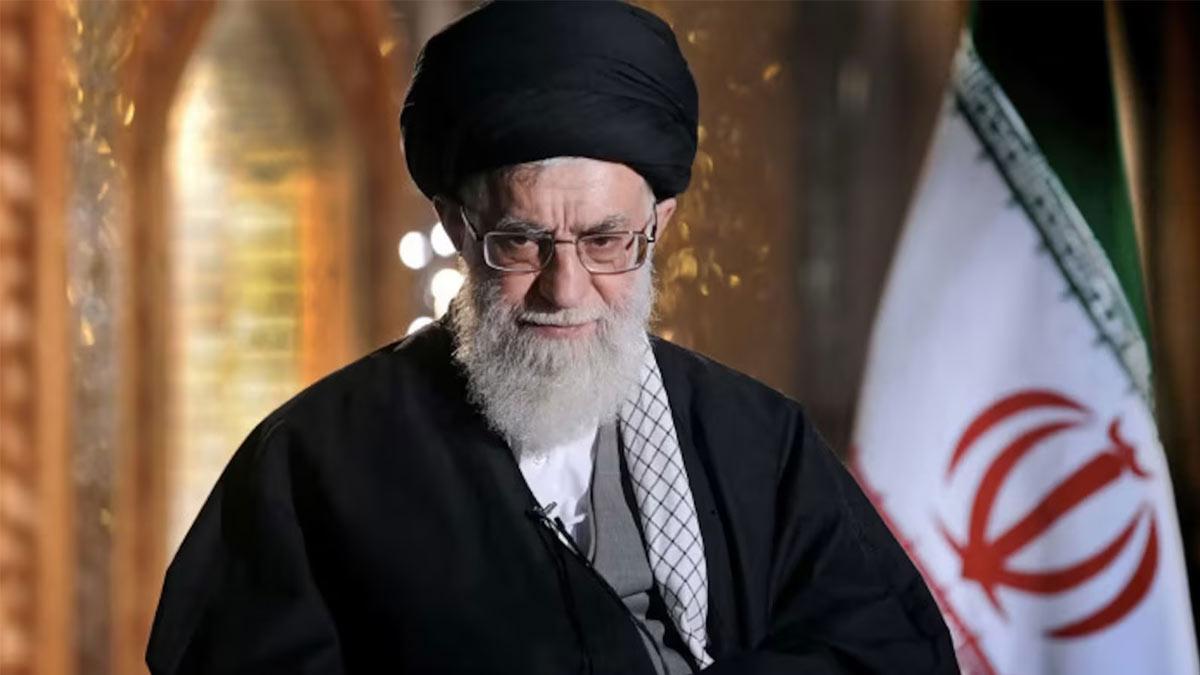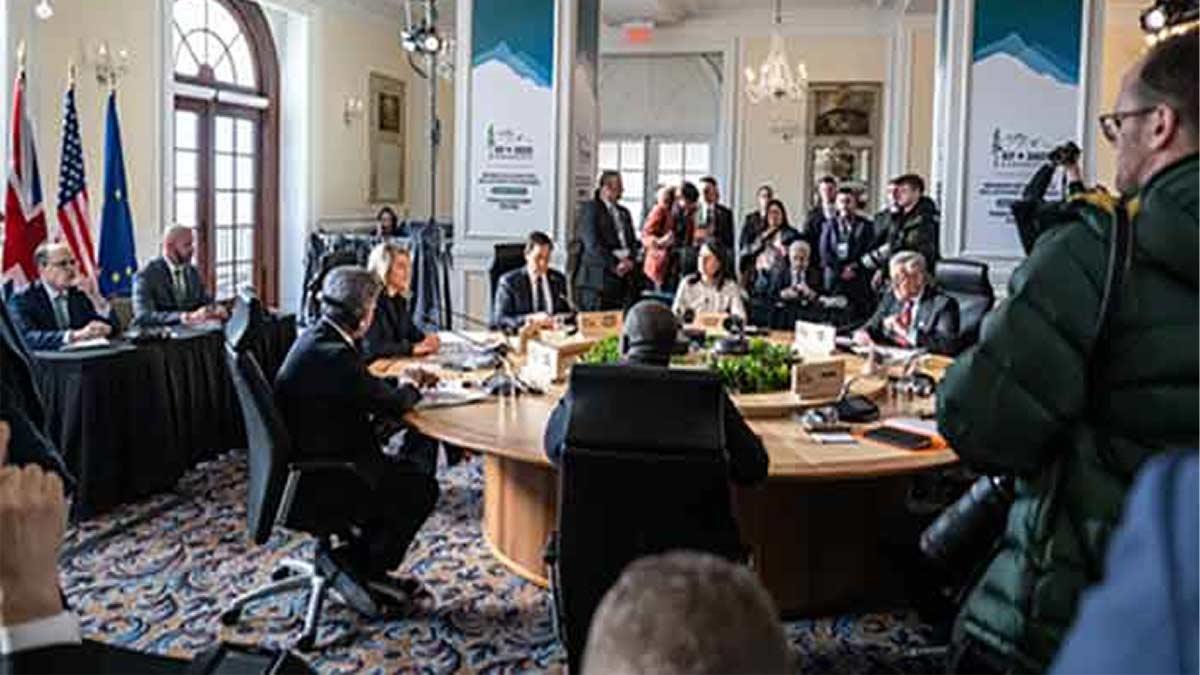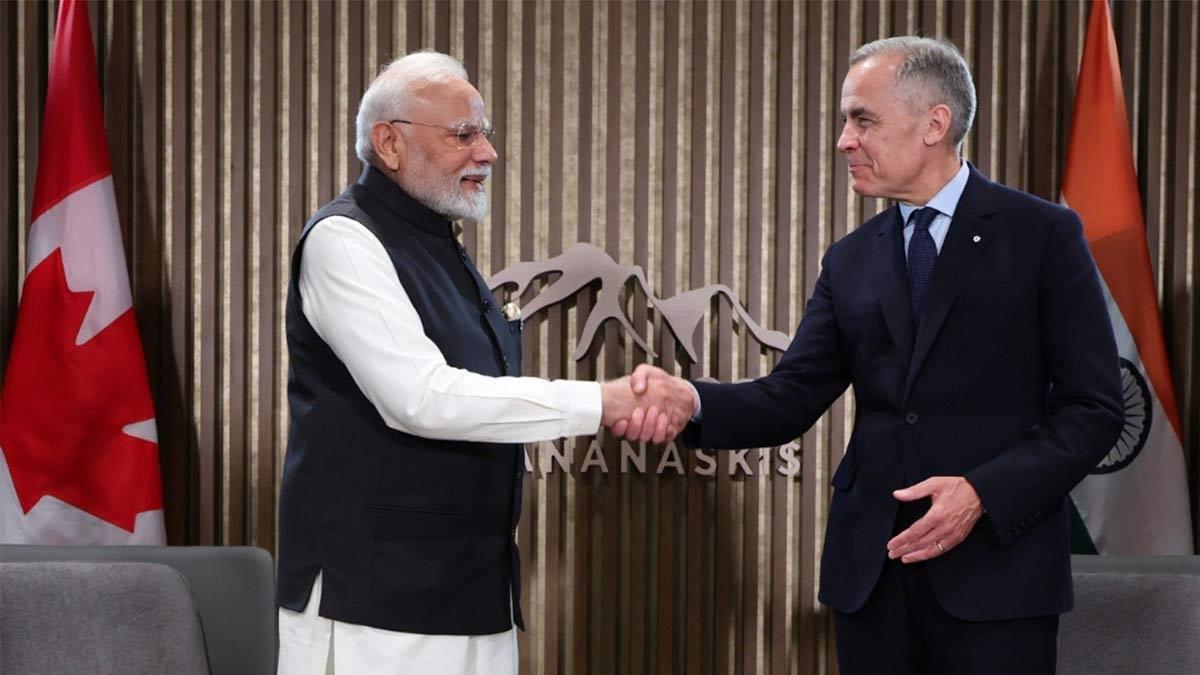Prime Minister Narendra Modi had a busy diplomatic agenda on the sidelines of the G7 Summit in Canada on Tuesday, with him having several high-level bilateral meetings with world leaders and reiterating India's rising prominence on the global stage.
There was one such meeting with Italian Prime Minister Giorgia Meloni. The two of them were spotted embracing each other warmly in a subsequently-viral video, showing their amicable relationship.
While posting on social media website X, PM Modi also reacted to Meloni's earlier comment: "Fully agree with you, PM Giorgia Meloni. India's friendship with Italy will keep growing stronger, hugely benefiting our people!"
The friendship between the two leaders has created a lot of buzz on social media, with the #Melodi combination of their names trending. Their previous selfies at COP28 in Dubai had also gone viral, and Meloni wrote one: "Good friends at COP28. #Melodi."
Besides Meloni, PM Modi also met with South African President Cyril Ramaphosa and Brazilian President Luiz Inacio Lula da Silva. Emphasizing their discussion, he tweeted: "Excellent discussions with two very close friends, President Ramaphosa of South Africa and President Lula of Brazil. We are unshakeable in our resolve to discuss matters that concern the Global South."
PM Modi also met with the important personalities from the European Union. PM Modi had a "fruitful discussion" with European Commission President Ursula von der Leyen and a "productive conversation" with European Council President Antonio Costa. These meetings highlighted India's strategic engagement with the EU on issues such as sustainability, security, and innovation.
In yet another bilateral meeting, Prime Minister Modi had a meeting with newly elected UK Prime Minister Keir Starmer. Describing it as an "exceptional conversation," Modi stated: "India and UK relations are becoming stronger, evident in the ground we've covered in sectors such as trade and commerce."
Even further strengthening regional cooperation, he also had a meeting with Japanese Prime Minister Shigeru Ishiba, where both the leaders reaffirmed their intentions to strengthen cooperation in fields such as technology and defence.
Another important engagement was with Canadian Prime Minister Mark Carney, who extended the G7 invitation to Modi. Carney emphasized that India's presence at the Summit was a "testament" to its global significance and to PM Modi’s leadership. “It is my honour to visit Canada once again after 2015 and be present with the people here,” PM Modi responded, appreciating the invitation.
He further stated, "PM Carney and I are keen to work closely to give a push to the India-Canada friendship. Sectors such as trade, energy, space, clean energy, critical minerals, fertilisers and so on have huge potential."
Modi also met with German Chancellor Friedrich Merz. Referring to the 25th anniversary of the India-Germany Strategic Partnership, Modi stated that the two sides exchanged views on ways to deepen cooperation in defence, semiconductors, innovation, and counter-terrorism.
Meeting South Korea's President Lee Jae-myung, Modi discussed joint ambitions in areas such as shipbuilding, technology, and green hydrogen, stating that both countries seek to advance cooperation across new-age industries.
In his interaction with Mexican President Claudia Sheinbaum—Mexico’s first female head of state in two centuries—PM Modi extended his personal congratulations and highlighted shared goals in sectors like agriculture, semiconductors, and healthcare.
Australian Prime Minister Anthony Albanese also separately met PM Modi during the Summit, extending the positive diplomatic rhythm between the two Indo-Pacific partners.
India's multidimensional participation at the G7, even if as an invitee, unmistakably underscored its proactive role in determining global themes—from democracy and development to sustainability and counter-terrorism. As Modi posted on X, India is "determined to do whatever it takes to build a better tomorrow for the coming generations.
Read also| Government Unveils Inquiry into Child Abuse Rings Linked to Pakistani-Origin Gangs

